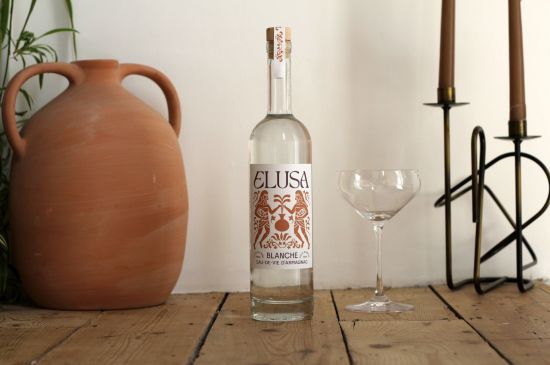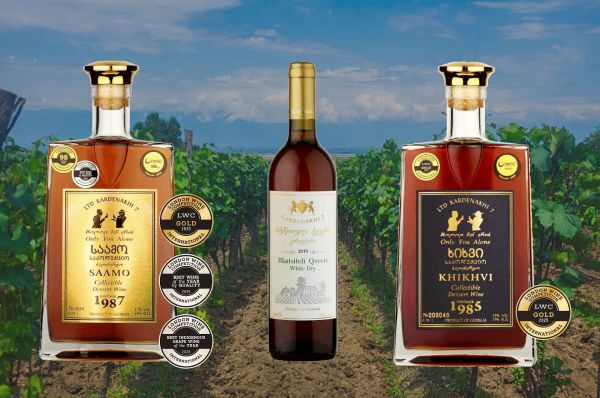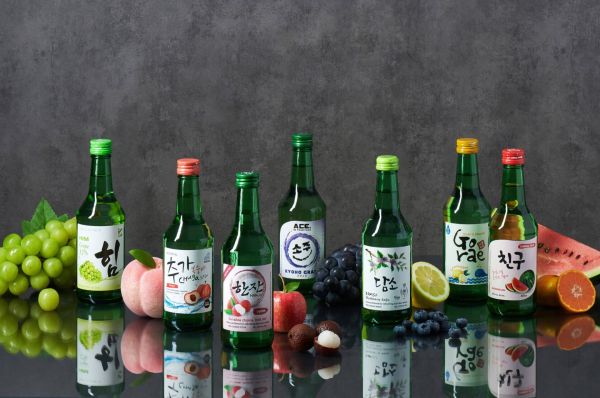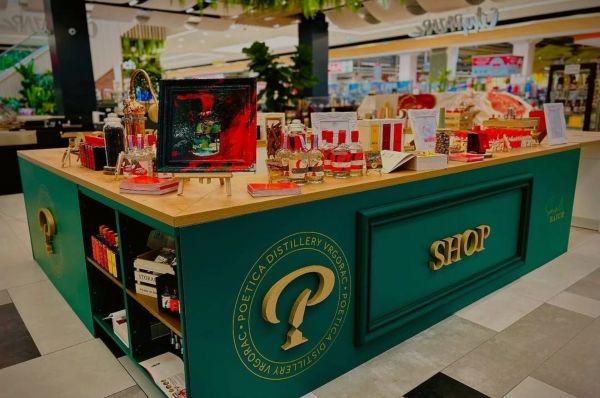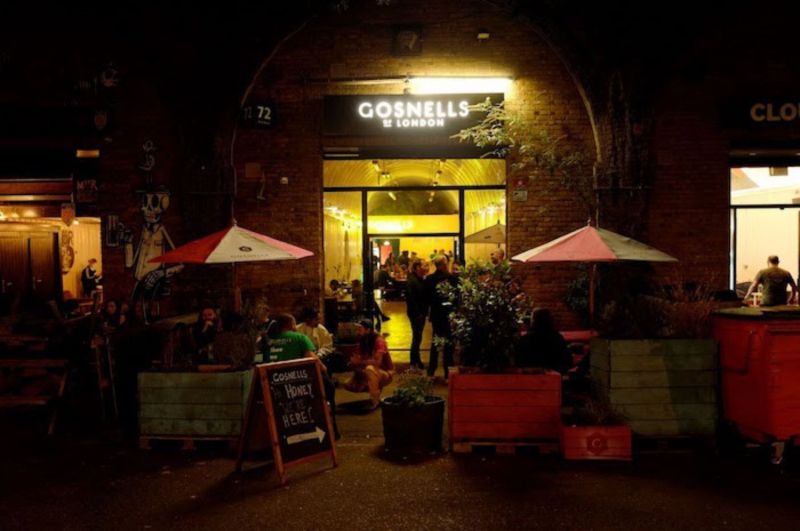
14/10/2022 Mead is enjoying something of a resurgence, with opening a bar in London propelling it into the 21st century.
According to Greek mythology, mead was considered to be the nectar of the gods. More recently mead has become entrenched in popular culture with Harry Potter's Hagrid ordering it by the pint, and also featuring heavily in Game of Thrones. But Mead is finally shaking off its antiquated image and moving into the 21st century, thanks to the opening of a bar dedicated to all things honey by London’s only meadery, Gosnells. Helen Arnold reports.
The brainchild of Tom Gosnell and head brewer Will Grubelnik, who have been making mead since 2016 from honey sourced from Peckham in southeast London, Gosnells Mead Bar opened in Bermondsey’s so-called Beer Mile earlier this month.
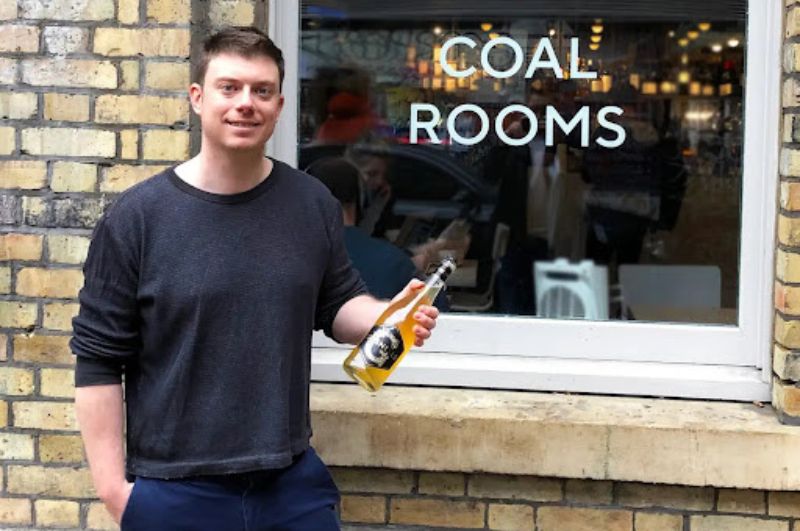
Tom Gosnell, founder of Gosnells, the country’s only bar dedicated to selling mead
Tucked away beneath a railway arch amidst a stretch of other small brewers, and with a capacity for over 100 drinkers, there is also an outside seating area with parasols to keep the worst of the British weather at bay. The bar, which acts as a showcase for Gosnell's various different meads, offers drinkers the opportunity to sample Brubelnik’s iterations of what is believed to be the world’s oldest alcoholic drink. Based on just honey and water, the blend is then fermented to reveal what Gosnell refers to as the “brilliance of the honey bee and its flowers.”
Gosnell says he had always been interested in drinks, particularly ciders and perries, and mead is quite similar in how it’s made. “We are obsessed with the honey which we use to make our drinks – we use the best honey to make the best drinks we can. It’s this that gives our drinks their unique appeal,” he explains. “Honey is a fascinating natural ingredient - when the bees collect nectar they are essentially concentrating the flavour from thousands of flowers and this really comes out in the honey. Gosnells and our drinkers love this message and the responsible way in which we support bees and other native pollinators.”
While there is no legal definition of meads in the UK, and no trade association to police the quality of production, fortunately most mead producers are purists, believing it should be made simply by fermenting honey in water with no added sugar.
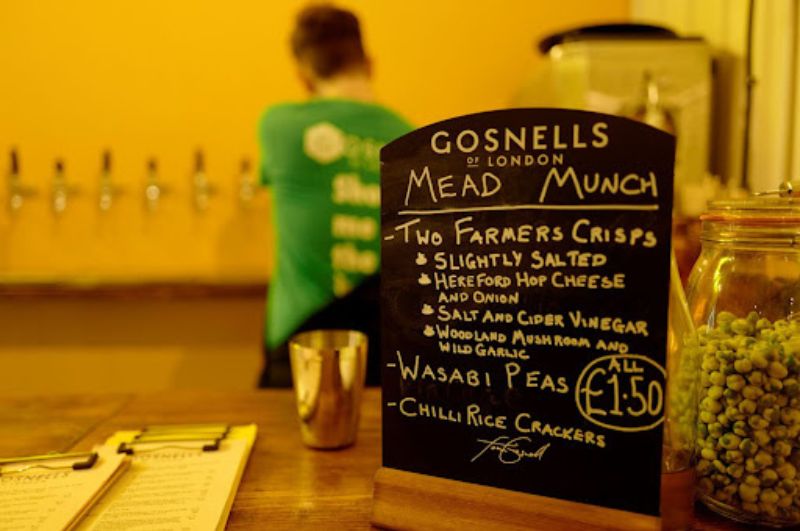
Visitors to Gosnells can enjoy a wide range of meads both on tap and in cans
But are UK consumers prepared for this mead comeback? Gosnell, not surprisingly, believes so. There are currently around 30 mead makers of various sizes in the UK, and unexpectedly, given its perceived, very English heritage, the US is actually ahead of the UK in both awareness of mead and the number of producers. However, the UK is slowly catching up. “The awareness around mead in the UK is definitely growing, and there are a whole host of other young mead makers choosing to launch in the category which is helping,” says Gosnell, adding that he has been having conversations with at least four other companies looking to launch imminently. “We’re seeing a massive increase in demand from consumers, particularly cider drinkers who are looking for something more natural and less sweet to swap for,” he says. “In the USA the category is already well established with over 1000 meaderies across the country. In the UK we are well stocked in London and ever-expanding, but you can generally find us in most good craft beer and wine shops.”
[[relatedPurchasesItems-38]]
With the bar's opening, an increasing number of consumers - particularly young women aged between 25 - 35 looking for alternatives to gin and tonic or cider - are discovering mead for themselves, which is exactly what Gosnell intends. But how did he decide on the location? “The first sales for Gosnells came from Maltby Street Market, which is now just around the corner from the tap room, so it’s something of a homecoming,” he says. “We knew that we wanted a more central location than our Peckham production site, to be able to attract a wider audience. Knowing the area well, when we saw a site on the “Beer Mile” under the railway arches come up we knew it was the perfect site.”
Since opening last month, Gosnell describes the response as “overwhelming” with visitors queuing to sample mead, many for the first time. “We are especially busy at the weekend when customers are doing the Beer Mile tour. We are a welcome break from the super hoppy, dank IPAs and other juice bombs that surround us!”
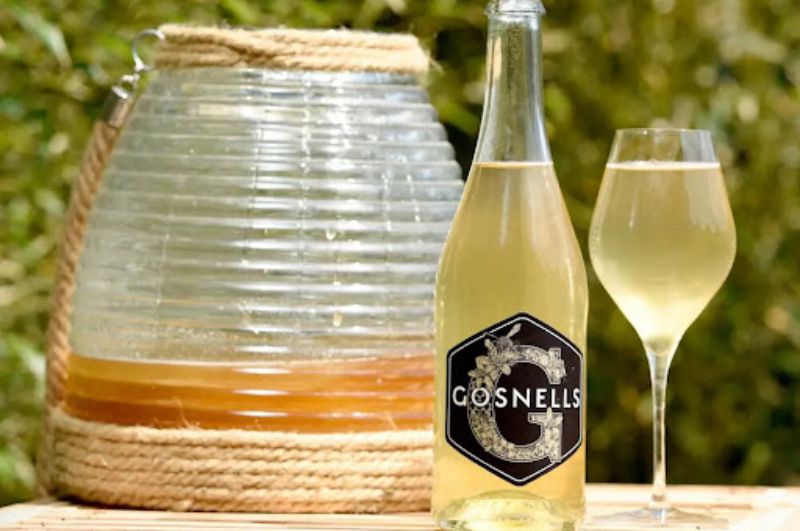
Mead, which can be sparkling or still is simply made from fermenting honey in water
The Gosnells Mead Bar’s draught selection is led by its new dry Wildflower Mead (4% abv) which is made from the nectar of 45 species of flowers, bushes, and trees. It is gluten-free and sparkling, with no added sulphites, and made from a brew using 100% honey and with no added sugar.
The Mead bar serves seven other meads on tap including Raspberry Wildflower at 5.4%, Sweet Cherry at 8%, and a cloudy Mojito Mead at 5.5%. Additionally, there are 75cl bottles of Gosnells 5.5% Classic and of Gosnells 12% Vintages, dating back to 2019. A range of 4% canned meads including Sour, pink Hibiscus, and Hopped are also available. At present nearly three-quarters of the drinks on offer are honey-based, while the rest of the menu is from independent producers of beer, wine, and spirits. However, Gosnell says he is working on building on their offering and importing some more exotic mead varieties from around the world.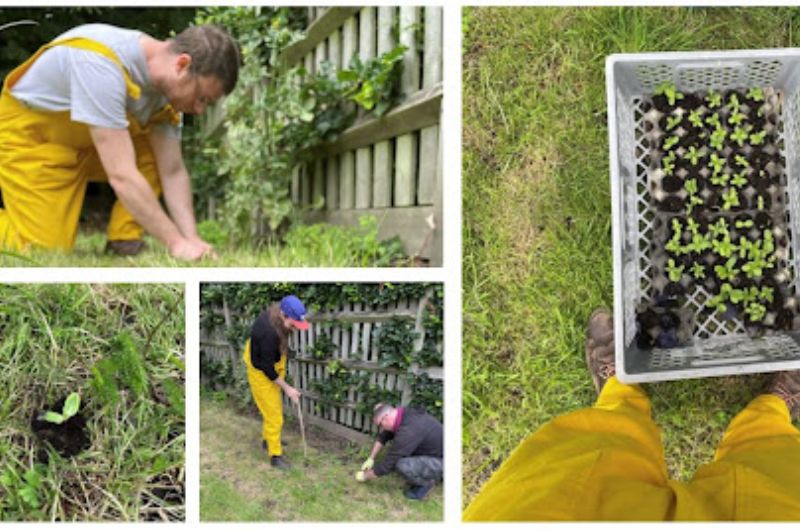
Gosnells have “regreened” some of the more barren parts of Peckham with plants and flowers, helping to attract honeybees
The environmental credentials of mead are pretty good to start with, requiring much less water in its production than beer, while its need for chemicals, artificial fertilizers, and tractors needed by other drinks categories is minimal. All that mead requires is a hive of happy bees, which are essential for a productive environment. While much is talked of sustainability, with companies jumping onto the bandwagon, many are guilty of so-called greenwashing. But Gosnells really does walk the walk and talk the talk in this respect and has done much to regreen parts of Peckham and the surrounding area by distributing and planting thousands of sunflower seeds and plants across the more barren parts of its inner-city heartland, with the help of many local volunteers. And this year, its Guerilla Gardening campaign, in tandem with Plastic Free Peckham, has gone one step further by planting in all those areas previously devoid of any greenery, not to mention bumblebees, honeybees, butterflies, and moths.
As to the future, Gosnell hopes that the business will continue to grow, and next year plans to break into the UK grocery sector, as well as open two new bars by 2025.
TAGS:
 The On Trade
The On Trade 


